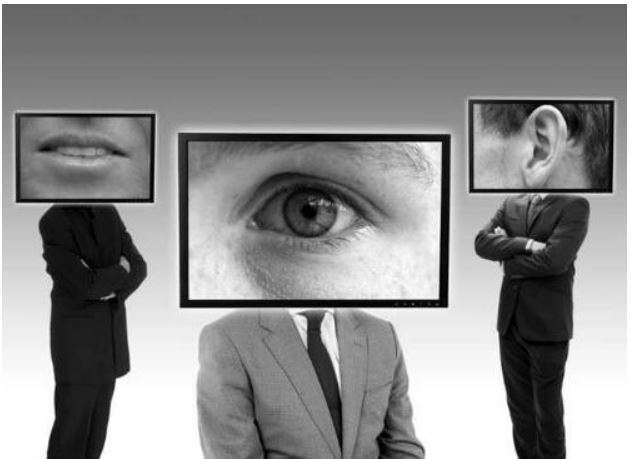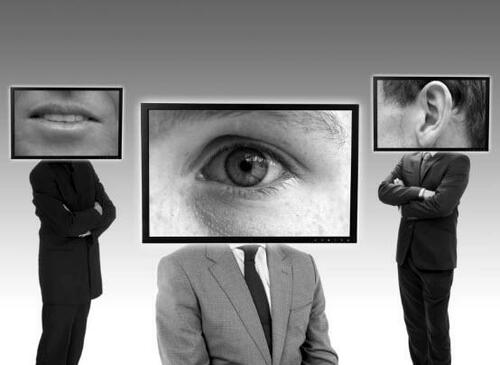Authored by Michael Snyder via The Economic Collapse blog,
Censorship of the Internet has been getting worse for years, but we just crossed a threshold which is going to take things to a whole new level.
On August 25th, a new law known as the “Digital Services Act” went into effect in the European Union. Under this new law, European bureaucrats will be able to order big tech companies to censor any content that is considered to be “illegal”, “disinformation” or “hate speech”. That includes content that is posted by users outside of the European Union, because someone that lives in the European Union might see it. I wrote about this a few days ago, but I don’t think that people are really understanding the implications of this new law. In the past, there have been times when governments have requested that big tech companies take down certain material, but now this new law will give government officials the power to force big tech companies to take down any content that they do not like.
Any big tech companies that choose not to comply will be hit with extremely harsh penalties.
Of course mainstream news outlets such as the Washington Post are attempting to put a positive spin on this new law. We are being told that it will “safeguard” us from “illegal content” and “disinformation”…
New rules meant to safeguard people from illegal content, targeted ads, unwanted algorithmic feeds and disinformation online are finally in force, thanks to new regulation in the European Union that took effect this month.
Doesn’t that sound wonderful?
When this new law was first approved, NPR admitted that it will enable European governments to “take down a wide range of content”…
Under the EU law, governments would be able to ask companies take down a wide range of content that would be deemed illegal, including material that promotes terrorism, child sexual abuse, hate speech and commercial scams.
In addition to “illegal content” and “hate speech”, the Digital Services Act also applies to “hoaxes” and any material that is considered to be “disinformation”. The following comes from the official website of the European Commission…
At the same time, the DSA regulates very large online platforms’ and very large online search engines responsibilities when it comes to systemic issues such as disinformation, hoaxes and manipulation during pandemics, harms to vulnerable groups and other emerging societal harms.
These new content rules are so vague that they could apply to just about anything.
And that is precisely what they want.
From this point forward, if you post something that they do not like, they will have the power to have it taken down.
Even if you don’t live in the European Union, they can have your content taken down, because someone in the European Union might see it.
So who will be doing the censoring?
Well, it is being reported that “hundreds of unelected EU bureaucrats will decide what constitutes disinformation and instruct Big Tech firms to censor it”…
Under this Orwellian regime, a team of hundreds of unelected EU bureaucrats will decide what constitutes disinformation and instruct Big Tech firms to censor it. The firms themselves, faced with reputational risk and financial penalties, will have little choice other than to comply. This can be done in all manner of ways: simply by human moderators removing content, by shadow-banning problematic creators to reduce their reach, by demonetising certain content, and by tweaking algorithms to favour or disfavour certain topics. And though, legally speaking, the DSA only applies in the EU, once installed inside Big Tech firms, this vast content-regulation apparatus will surely affect users in the rest of the world, too.
In addition, the official website of the European Commission is telling us that big tech companies must “react with priority” to any content that has been reported by “trusted flaggers”…
A priority channel will be created for trusted flaggers – entities which have demonstrated particular expertise and competence – to report illegal content to which platforms will have to react with priority.
This means that far left organizations that have been set up to police content online will now be given extraordinary power to restrict speech on the Internet.
Needless to say, the Internet is never going to be the same after this.
Initially, this new law will apply to 19 very large online platforms…
The online platforms affected are Alibaba AliExpress, Amazon Store, Apple AppStore, Booking.com, Facebook, Google Play, Google Maps, Google Shopping, Instagram, LinkedIn, Pinterest, Snapchat, TikTok, X (listed as Twitter), Wikipedia, YouTube, the European clothing retailer Zalando, Bing and Google Search.
If any of those large online platforms choose not to comply with the new law, the penalties could be extremely severe…
A firm that does not comply with the law could face a complete ban in Europe or fines running up to 6% of its global revenue.
Last month, X/Twitter said it was on track to generate $3bn (£2.4bn) in revenue. A fine of 6% would be the equivalent of £144m.
Once we get to February 24th, 2024, the Digital Services Act will also apply to a vast multitude of smaller platforms.
At that point, it will be very difficult to escape the reach of this new law.
And just to make sure that they can keep a very close eye on things, the EU just established a brand new office in San Francisco on June 22nd…
European Commissioner for Internal Market Thierry Breton cut the ribbon to commemorate the official launch of the European Union’s San Francisco office on Thursday, June 22, alongside Lieutenant Governor of California Eleni Kounalakis, California State Senator Scott Wiener, and Chair of the European Parliament’s Committee on Legal Affairs Adrian Vazquez.
“I am very glad to be here today in Silicon Valley, a global centre for digital technology and innovation, to officially inaugurate the new European Union office in San Francisco,” Commissioner Breton said in his keynote address to an audience of business and technology sector leaders. “As like-minded partners who strive for reciprocity and common principles, all while respecting our respective democratic processes, our transatlantic ties are more relevant than ever in the area of technology.”
For many years, the Internet was one of the last bastions for free speech.
But now everything has changed.
From this point forward, far left European bureaucrats will get to determine what is acceptable and what is not acceptable on our large online platforms.
Direct government censorship of the Internet is here, and that is going to make it much more difficult to share the truth with a world that desperately needs it.
These are such dark times, and they are getting darker with each passing day.

